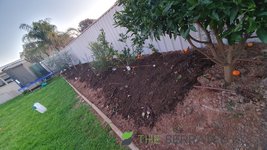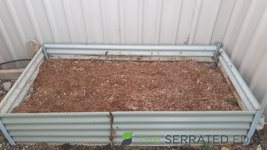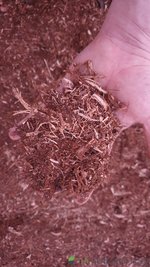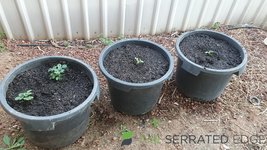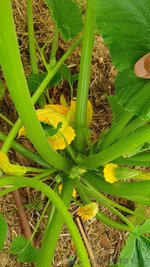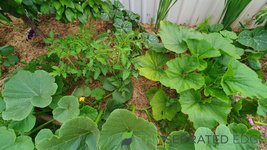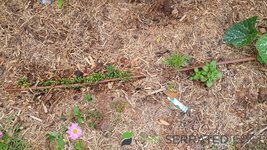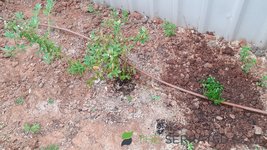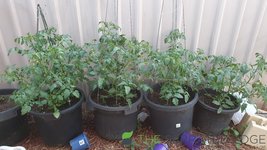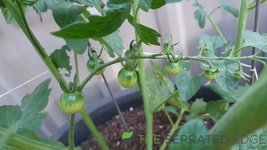https://www.alchimiaweb.com/blogen/seed-sprout-tea-sst-cannabis-plants/
How to make Seed Sprout Tea (SST) for cannabis plants
What is Seed Sprout Tea or SST?
Despite forming part of Chinese cuisine and medicine for centuries or even millennia, it's only been in the last 30 or 40 years that the western world has really woken up to the health benefits of
eating seed sprouts, or
germinated seeds. These days it's widely accepted that adding some sprouted beans or other seeds to our daily diet is highly beneficial for their high content of protein, enzymes, amino acids, vitamins, minerals and antioxidants. But did you know we can get some great results by adding seed sprouts to the diet of our
cannabis plants too?
Yes, it's true! Our plants can make the most of the beneficial properties of sprouted seeds and enjoy a natural boost in growth and plant health.
Seed sprout tea (SST) is an easy, economical and environmentally-friendly way in which we can irrigate our garden with our own
homemade plant growth stimulant, rich in phytohormones, enzymes, minerals and nutrients, and is suitable for use on cannabis plants in vegetative growth as well as during the
flowering period, depending on the seeds being used.
What seeds can we use to make SST?
Seeds or grains will sprout when we expose them to
air, water and warmth. This sets in motion a series of biochemical reactions that alter the composition of the seed, during which process the macronutrients are broken down and the
bioavailability of micronutrients is hugely increased. In short, the sprouted seeds are
far more nutritious than either the grown plant or the seed itself, and it's this vitality that we want to capture and apply to our
organically-grown cannabis plants, whether we're cultivating outdoors, in greenhouses or
indoors using grow lamps.
There are a few types of seed that are most commonly used for this purpose, these are primarily
maize, barley, alfalfa and lentils. These are used at different times, depending on what stage of life our plants are in, and the desired effect.
Barley (Hordeum vulgare)
Sprouted barley grains contain are
very high in enzymes and gibberellins, as well as many vitamins, minerals, amino acids and nutrients. As well as the
growth-promoting effects of gibberellins, barley SST is principally applied in order to establish and maintain the enzymes in the substrate. These
enzymes help to digest dead roots, keeping the substrate and root zone in good health, as well as potentiating the
soil food web and improving nutrient uptake. Some of these enzymes, specifically chitinase enzymes, have been shown to have an inhibiting effect against
fusarium, a pathogenic fungus that causes great losses in agriculture as well as in cannabis gardens.
If whole barley grains are difficult to find then
malted barley is a good substitute. Because the grain has already been sprouted as part of the malting process, this is a much faster method and will only need to be steeped, or "bubbled" in water for a few hours to make a natural enzyme tea, although
freshly-sprouted seeds will always be more effective. To use malted barley add 2 tablespoons per gallon of water. Apply this or Barley SST
once a week during vegetative growth and then give a top-up application roughly halfway through the flowering period.
Alfalfa (Medicago sativa)
Rich in enzymes, vitamins, proteins and, most importantly,
triacontanol, a potent growth-boosting plant hormone which increases photosynthesis by raising chlorophyll levels, increasing root mass, alfalfa seed sprout tea is a powerful plant stimulant that's perfect for the transition into flowering, when it helps to maintain close internode spacing and increase root mass. It can also be used in combination with Corn SST during vegetative growth and flowering as a general growth booster. More care must be taken with alfalfa as it is very powerful indeed and we recommend to either start the process with half the amount of seeds or to dilute in double the quantity of water before application.
Corn (Zea mays)
Corn or maize sprouts are high in enzymes, minerals and nutrients, and also very rich in
cytokinins, a plant growth hormone which
promotes lateral budding, branching and the development of thicker stems leading to improved nutrient transport and the capacity for heavier crops. It can even be used at twice the strength to control height, resulting in really squat, bushy plants, perfect for growing spaces with reduced headroom.
Organic sweetcorn grains are the most common source of corn to use for sprouting, but all maize grains are easy to germinate and some growers even seek out heirloom varieties like Blue Corn to ensure their SST is
GMO-free. Corn SST is best applied in
late vegetative growth and up to the fourth or fifth week of flowering.
Lentils (Lens culinaris or Lens esculenta) and other legumes
While alfalfa is, in fact, a legume, here we're talking about other legumes, not only
lentils but also larger seeds such as
peas, beans or chickpeas. The sprouts of these seeds contain
high concentrations of auxins, producing an SST that makes a great
rooting stimulant as well as working to boost growth in general.
Lentils are a great choice because, due to their relatively small size, they will germinate faster than the larger legumes.
These are the most commonly used seeds for making SSTs, but it doesn't mean that other types of seed won't work equally worth experimenting with. For example, an SST using sprouted
hemp seeds ought to be an excellent
growth booster for cannabis plants, while sunflower seeds are well known to be
high in phytohormones, and many others such as rice, fenugreek, pumpkin have been recommended as well.
It's important to always use seeds from
organic agriculture for our SSTs, to avoid the possibility of introducing any trace of chemical pesticides and other undesirable compounds into our garden. The organic aisle in the local
supermarket or health store is often the most convenient place to source seeds for sprouting, usually providing us with all the seeds listed above, alongside a range of other seeds that we could try out for ourselves at home.
